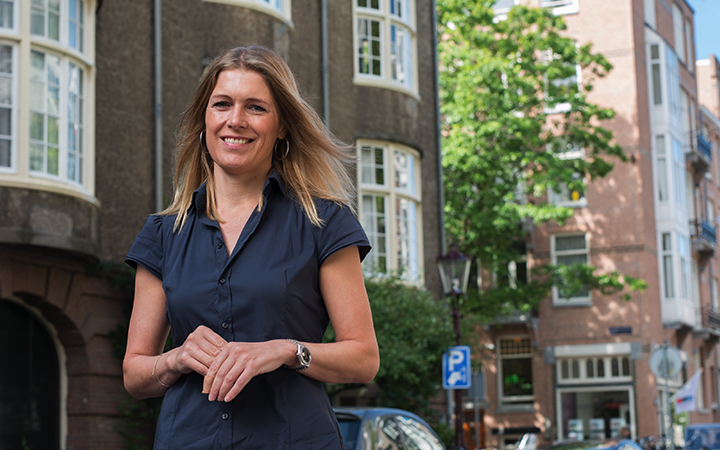Dutch Mortgage Requirements
Expat Guide to the Dutch Housing Market
When buying a property, you want to make sure your new home meets all your wishes. Also, you want to make sure your financial affairs are in order. Good to be up to date regarding Dutch mortgage need-to-know’s:
Bank, mortgage provider, mortgage brokers
Getting a mortgage means entering a financial and legal contract with a Dutch bank or financial institution. You can either deal with your bank directly or take on an intermediary such as an independent financial advisor or mortgage broker.
An independent financial advisor will be able to compare different mortgage providers and banks, all their different mortgage options and help you choose which offer and which conditions suit you best. They’ll take on the paperwork and help you with insurances.
Usually, an introductory meeting with an advisor is free of charge. Be sure to check what services are covered by your mortgage broker and which expenses are included in the fee.
When dealing with your bank directly, you’ll find they divide their services into advice fees on the one hand and handling fees on the other.
The independent advisors of De Hypotheekshop Haarlem Centrum will help you explore all your options and will investigate which one suits your needs the best. Interested? Let us know, we’ll get you in touch for a free orientation session.
Maximum mortgage
In the Netherlands homeowners can not take out a mortgage higher than the value of the property concerned. This means you can not finance the additional costs through your mortgage. However, if you plan on doing some construction work to enhance the energy label of your home, you can take out a mortgage up to 106% of the value of your new house. Make sure to get good advice on all the requirements!
Types of mortgages
There are roughly two types of mortgages in the Netherlands: the annuities mortgage and the linear mortgage.
- Annuities mortgage
With an annuities mortgage you will start off with paying mostly interest and a little loan repayment. Over time you’ll pay increasingly less interest and more loan repayment. Because of this, your monthly expenses will start off relatively low and build up over the years.
- Linear mortgage
With a linear mortgage you repay a fixed part of your loan every month plus interest. Because of this your debt decreases rapidly and the interest reduces along with it. Over time your monthly expenses drop, instead of increasing as is the case with an annuities mortgage.
Variations on the types of mortgages as stated above may be possible. A mortgage broker can tell you all about it. Be sure to check whether you’re eligible for tax relief whilst closing your mortgage.
Tax deductions
If you have an annuities or linear mortgage, you’re eligible for tax relief. The interest on your mortgage is deductible, refunds to be received either monthly or annually.
Mortgage requirements
Some banks require expats to have lived in the Netherlands for five years, to pay a deposit or to submit proof that your residence permit can be extended. However, in each case Dutch banks will require you to hand over a number of documents. First of a valid ID and your residence permit. Next, depending on your personal situation you will probably need to file the following:
- Proof of income
A permanent employment contract is considered valid proof, as well as a statement from your employer including information on your contract and the details of your salary. You’ll also need to hand over your most recent payslip, your last income tax return and a confirmation letter when you make use of the 30% ruling.
Temporary contract? PhD-student or researcher at a Dutch university? You’ll also need a statement from your employer with the confirmation that your position or appointment is at least on-going or set to become permanent.
Self-employed? You’ll need documents dating three years back: your personal income tax return, your corporate tax returns and the annual figures. In addition you’ll need to file your shareholder’s agreement, an extract of the Chamber of Commerce and a forecast for the current year.
- Proof of assets
Because the Dutch system allows you to borrow no more than the value of the property you’re buying, you’ll need to pay for the additional costs out of your own pocket. In short: you’ll need assets to get a mortgage. You’ll need to hand over statements from your checking and savings accounts and need to document and be able to verify other assets such as investment accounts, retirement accounts and other properties you might own.
- Proof of debt
Your mortgage provider will also check your debt. They’ll check to see if you have any of the following credits:
- Loans, including smartphone subscriptions;
- Student debts;
- Credit cards;
- Alimony payments;
- Ground lease;
- Private lease car.
- Documents related to your property
Of course, your mortgage provider needs to know what you’re buying. So they’ll ask you for:
- The purchase agreement;
- The valuation report;
- The report stating the structural condition of the property;
- In case you have renovation plans, any specifications of these plans.
- The fee you’ve agreed to pay your real estate agent.
Of course, your unique situation may require you to file additional documents, or perhaps your mortgage provider has additional requirements. Be sure to prepare yourself and take time to get the paperwork together. An expat-friendly mortgage advisor can help you with all of this. We highly recommend the independent financial advisors of De Hypoheekshop Haarlem Centrum!
For more information and questions on living in Holland, please contact:

- Contact via Whatsapp
- Mail Isabelle Band
